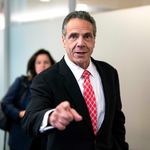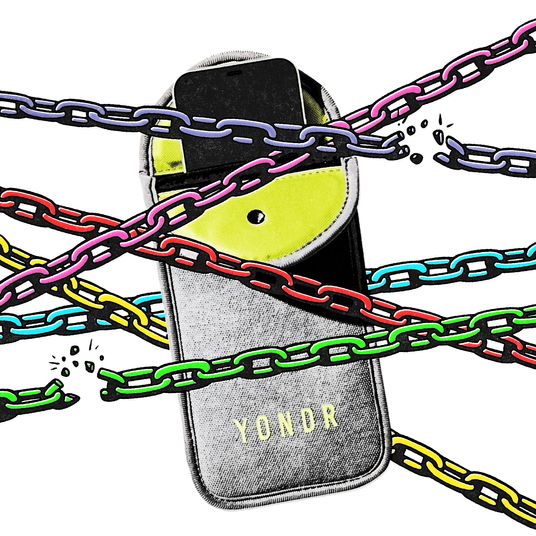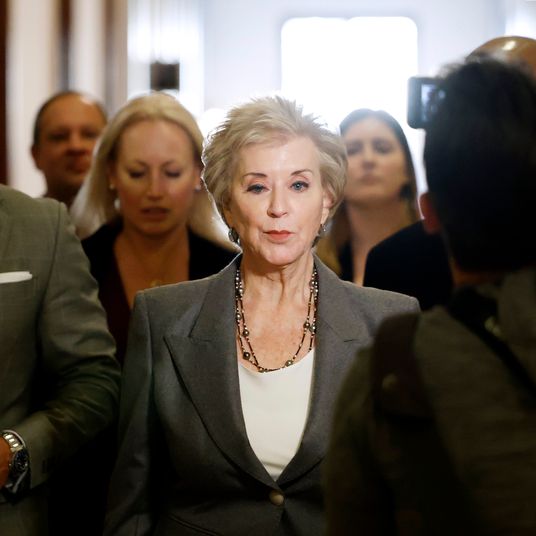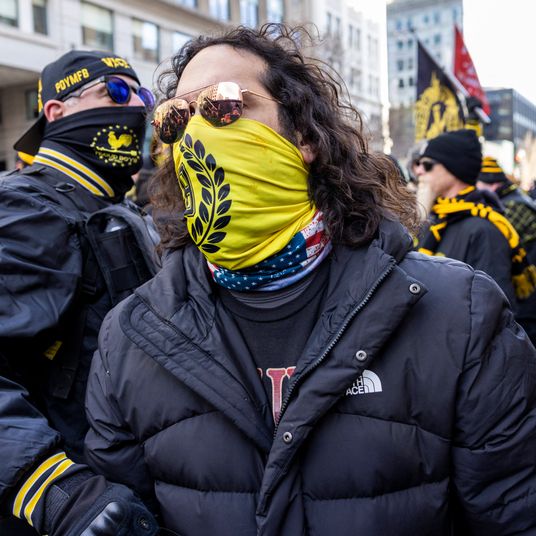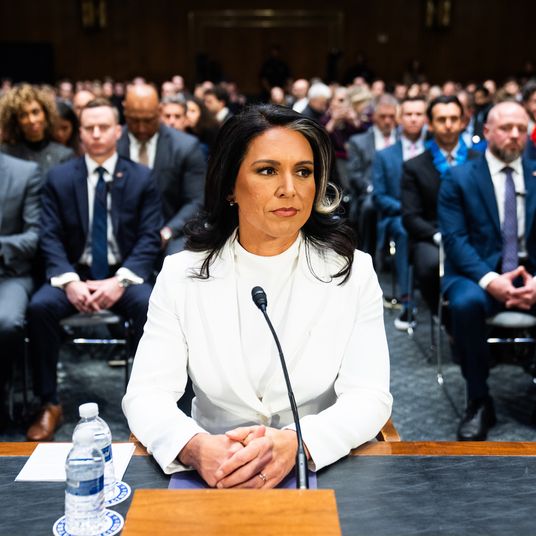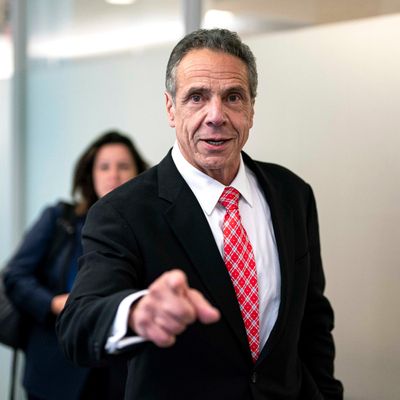
Former governor Andrew Cuomo hasn’t kicked off his comeback bid yet, but all signs are pointing to an imminent run. He’s retaining an old political adviser, Charlie King, and allies are in the process of setting up a super-PAC for a possible mayoral bid. Poll after poll shows him winning the Democratic primary in June, defeating Eric Adams and a bevy of rivals rather easily. Felled by a sexual harassment scandal in 2021, Cuomo has been easing his way back into public life, and with Adams reeling from a corruption indictment, there may never be a better time for the former governor to complete his comeback.
There are compelling arguments for a Cuomo victory — and several more for a flameout. Let’s start with the obvious: Cuomo is, by far, the best-known candidate in the race. Scott Stringer, the former city comptroller, has run before, but both he and his successor, Brad Lander, lack Cuomo’s name recognition. The same holds for the state legislators competing, like Zellnor Myrie and Zohran Mamdani, as well as other Democrats polling in the back of the pack, including former assemblyman Michael Blake.
In a city still wary of crime and weary of municipal mismanagement, Cuomo may hold a great deal of appeal. He was governor for more than a decade and he can tout tangible successes, like the rehabilitation of La Guardia Airport, the raising of the minimum wage, and increased tuition aid. His executive experience far outstrips any of his rivals’, and there’s an obvious coalition of outer borough Black voters, white moderates, and Orthodox Jews to be knitted together for the primary. At the minimum, he has the ability to re-create the path to victory that Adams took in 2021, besting his rivals in working class neighborhoods and securing the support of both labor leaders and business elites. In a political era no longer galvanized by the social-justice left, there’s even reason to believe voters have moved on from his Me Too scandal.
Money matters, too. Cuomo is sitting on $8 million in a state account, though most of it can’t be transferred over to a city war chest if he wants to tap into the generous matching-funds program. But he may not need it. There’s a world where a Cuomo launch announcement generates enough interest that small-donor dollars pour in and he qualifies for public matching funds, unlocking millions of dollars. At the same time, wealthy allies can seed a super-PAC and start bludgeoning his rivals — or at least drop millions on TV ads to rehabilitate his image and counter the barrage of attacks unleashed on him.
That’s the great question, ultimately: If Cuomo gets in, how high can he rise? There are equally bullish and bearish cases for Cuomo’s comeback. The bearish case is based in history. The last two vaunted front-runners in competitive Democratic mayoral primaries, Christine Quinn and Andrew Yang, both collapsed. Their stories weren’t so different. They spent many months at the front of the pack, offering plenty of time for their opponents to effectively gang up on them. Press scrutiny increased. In both cases, it was progressives beating them up, though it was a moderate, Adams, who benefited most from Yang’s slippage. Quinn was undone by her close association with Michael Bloomberg — the billionaire mayor, after an unpopular third term, had worn out his welcome — and a Bill de Blasio–aligned super-PAC that savaged her throughout the primary. Yang, meanwhile, was new to municipal politics and struggled to convince voters he could adequately manage the city.
Cuomo backers will point out that he won’t have Yang’s troubles and his trajectory isn’t much like Quinn’s. A better comparison, to his detriment, might be Eliot Spitzer, another disgraced former governor who attempted a comeback a full five years after his resignation. Spitzer was an overwhelming front-runner in the 2013 primary for city comptroller and seemed to get into the race late enough — just before petitions were due — to counter a long-range negative campaign against him. Stringer, his opponent then, never let up reminding voters of Spitzer’s prostitution scandal. He constantly bashed the ex-governor. In the end, Spitzer’s negatives rose too much and Stringer won the primary.
Even if the Trump Justice Department drops the corruption charges, Adams is likely to become the first incumbent mayor in three decades to lose a re-election bid; he really is that unpopular. But that also means he’s got little to lose and will relish thrashing Cuomo, especially if the charges are gone and he can claim he was exonerated. The Black civic and church leaders Cuomo has assiduously courted could stick with Adams, transforming the primary into a bitter race war not unlike Cuomo’s failed 2002 gubernatorial campaign against Carl McCall, a well-regarded Black politician. Cuomo would prefer Adams to resign. But Adams has no incentive to go away and will be happy to play spoiler.
If Me Too isn’t going to drag Cuomo down, there’s still COVID. His handling of the pandemic has not aged well. He authorized a policy that sent COVID patients into nursing homes and appeared to intentionally mislead the public on the numbers of deaths there. Families of COVID victims are still furious. In 2020, as tens of thousands of New Yorkers died, he accepted $5 million to write a self-congratulatory memoir on his governing experience during the pandemic. At least one pillar of his potential coalition, Hasidic Jews, still resents him for 2020 lockdown orders they believe unfairly targeted their neighborhoods. If Adams remains in the race, they could very well default to him.
Every other candidate knows they will have to tear Cuomo down to have any chance of winning. Stringer, Lander, and Adams will be united there, and just as outside spending could prop Cuomo up, progressive interest groups will unite in an anti-Cuomo campaign. The Working Families Party is already headed in that direction. One wild card is Governor Kathy Hochul, who undoubtedly would prefer Cuomo disappear; she was his lieutenant governor when he resigned, and the two are not close. Hochul could apply pressure on Cuomo’s old donor base — real estate and Wall Street titans — to stay out of the primary, lest they lose access to the governor’s mansion.
For now, Cuomo is biding his time. Petitions aren’t due until April 3, and he wouldn’t benefit from getting into the primary early. His opponents, though, will have plenty of time to prepare. They’ll be poll-testing attacks to see which stick. If Cuomo wants his political life back, he’ll have to earn it.



